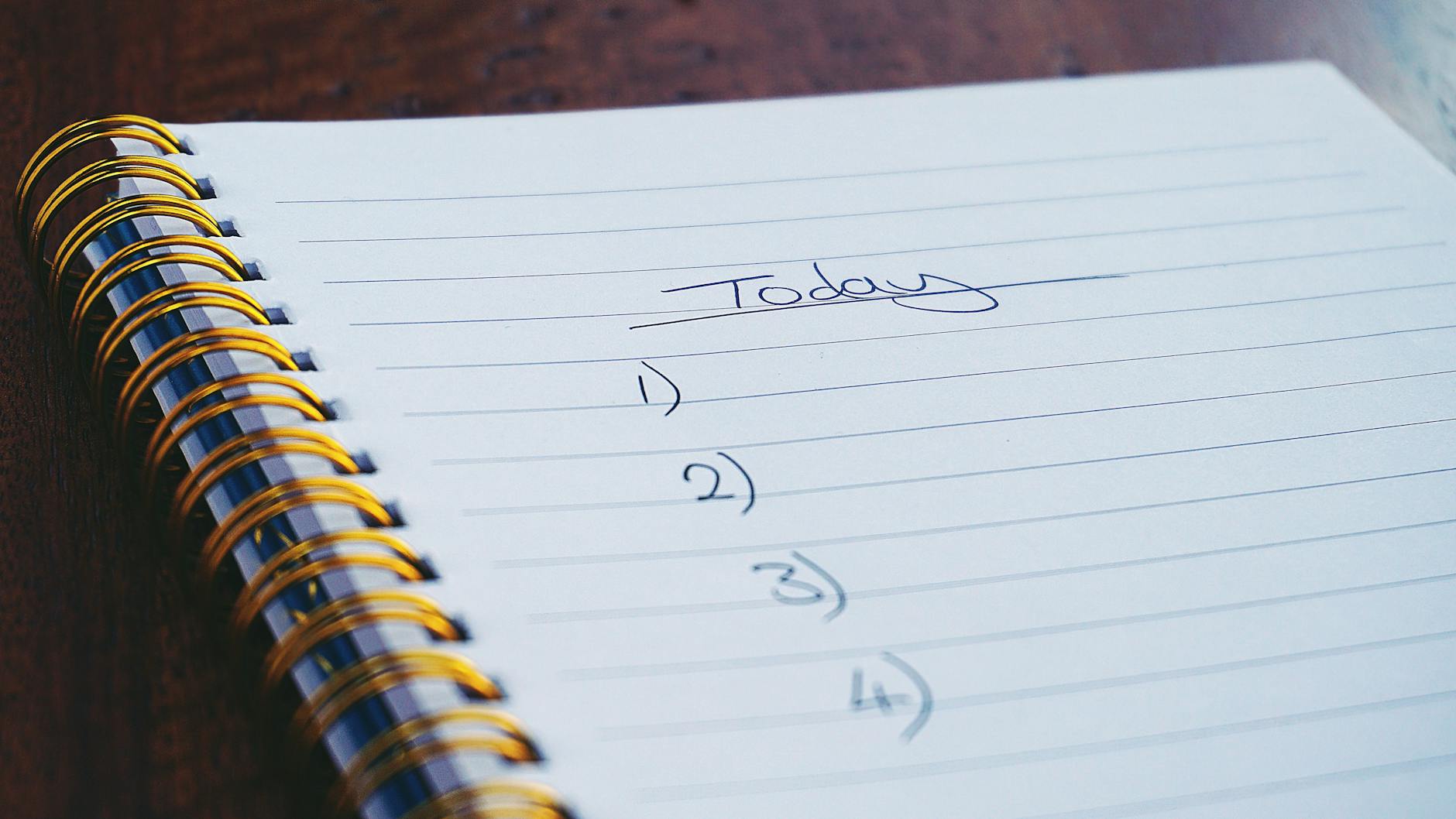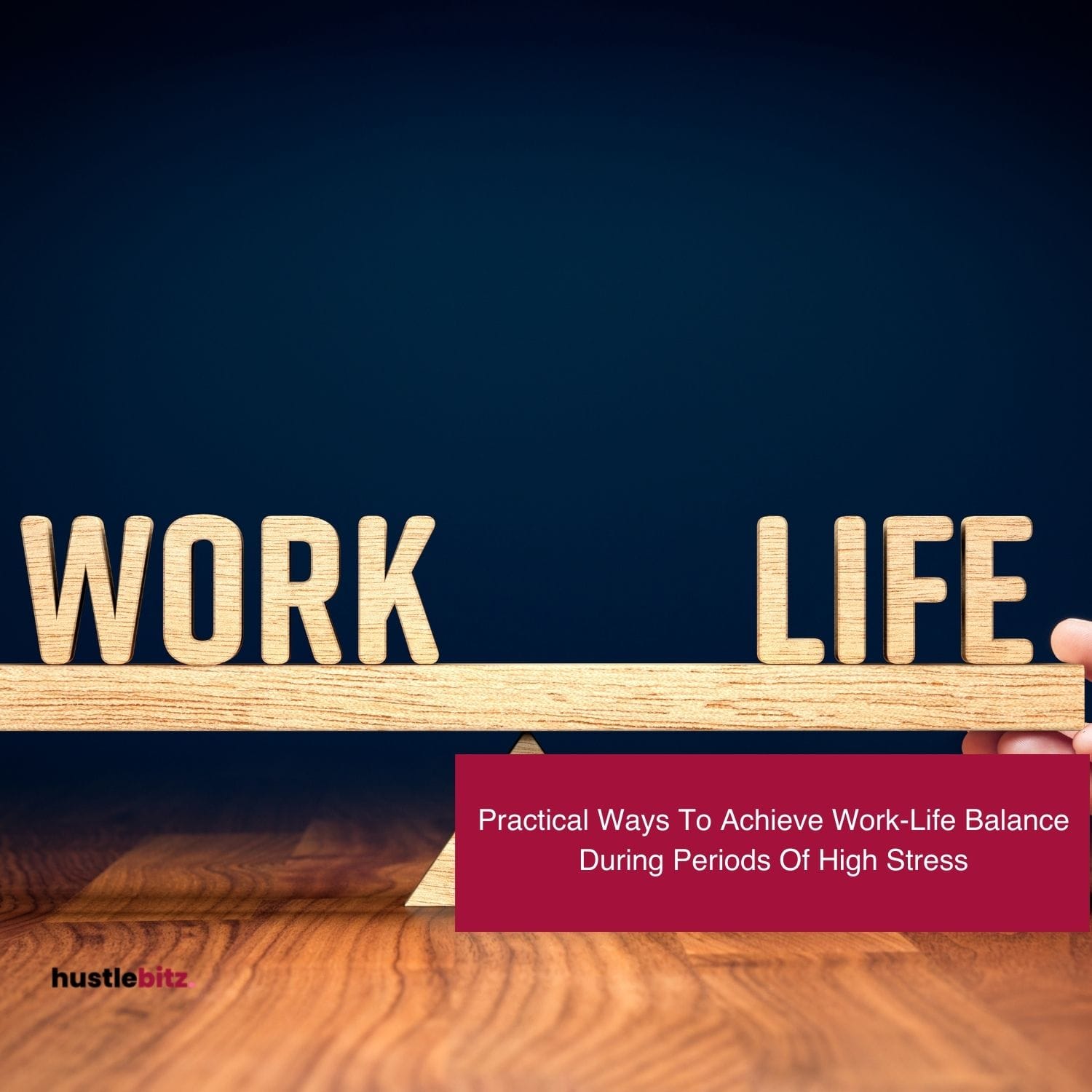Practical Ways To Achieve Work-Life Balance During Periods Of High Stress
Life is full of stress, and every now and then, periods of high stress can make it hard to achieve a healthy work-life balance. It’s easy to become overwhelmed and feel like there are not enough hours in the day. But don’t despair – there are practical ways to manage your time so that you can have an enjoyable life outside of work. In this article, we’ll explore how to achieve a better work-life balance during times of high stress.
The idea of achieving a healthy balance between personal and professional commitments can be daunting. It often seems impossible when you’re dealing with tight deadlines at work or having to juggle multiple responsibilities at home. That’s why it’s important to understand how to prioritize tasks and make sure your daily routines are focused on what matters most. With the right strategies in place, you can create a more balanced lifestyle that helps you stay productive without sacrificing your wellbeing.
By implementing some simple yet effective steps, it is possible to manage stress and achieve a healthier work-life balance. We’ll discuss different ways that you can start making changes today, so you can find more peace and joy in both your working life and your personal life. So let’s get started!
Understanding Stress
Stress is an unavoidable part of life; understanding it can help us manage how it affects our work-life balance. To understand stress, it’s important to recognize the physical and psychological responses that occur when we are under pressure. Physically, the body releases hormones like cortisol and adrenaline which increase heart rate, blood pressure, and respiration. Mentally, stress can cause feelings of anxiety or fear that we are not able to cope with a situation.

It’s also important to recognize the sources of stress in our lives. These can vary from individual to individual but some common causes include financial worries, difficult relationships, and job insecurity. Identifying these sources helps us better understand how they contribute to our stress levels and work-life balance.
We all respond differently to stress so it is essential to develop effective strategies for managing it more effectively. This could involve taking time out for relaxation or finding ways to reframe situations in a more positive light. Developing healthy habits such as eating well, exercising regularly and getting enough sleep can also help us feel more balanced during periods of high stress.
By recognizing the physical and mental effects of stress, identifying its sources in our lives, and developing effective management strategies, we can achieve better work-life balance during stressful periods.
Setting Clear Boundaries
Setting clear boundaries is an important way to manage stress and achieve work-life balance. It helps us to prioritize our tasks and responsibilities, as well as set realistic goals. To begin setting boundaries, it’s important to recognize how we are spending our time. Making a list of all the tasks you need to accomplish can help you prioritize and determine which ones are most important. Setting a schedule for yourself can also be helpful, as it will allow you to allocate specific times during the day for completing tasks.

Next, it’s important to consider the impact of your workload on your emotional and physical wellbeing. Taking breaks throughout the day can reduce stress levels and help keep your focus on the task at hand. Scheduling time away from work is essential for maintaining balance; this could include anything from taking a walk or spending time with family or friends.
It’s also important to communicate clearly with colleagues about expectations for when tasks should be completed. This will help ensure that deadlines are met without sacrificing your own wellbeing in order to do so. Finally, it’s crucial to recognize when it’s necessary to take a step back from work or say “no” when taking on additional responsibilities would be too much. By doing so, we can better manage our stress while still meeting our commitments in both our personal and professional lives.
Prioritizing Tasks
One of the best ways to achieve work-life balance during periods of high stress is by prioritizing tasks. Knowing which tasks are the most important and need to be done first can help you make better use of your time, so that there’s more time for leisure activities. To prioritize tasks, start by writing out a list of all the things you need to do in the coming days and weeks. Then, decide which items on that list are most important and need to be done first. This will help ensure that you meet deadlines and don’t miss any important commitments.

Next, assign yourself a certain amount of time for each task. Doing this will help prevent you from getting overwhelmed and allow you to create a plan for tackling each task in an organized manner with minimal stress. Additionally, it’s important to set reasonable expectations for yourself. Don’t try to cram too many tasks into one day or week; instead focus on doing them gradually over a longer period of time.
Finally, remember that it’s okay if some tasks don’t get done right away or at all. Not everything needs to be done immediately; what matters most is that you take care of yourself and keep your stress levels manageable so that you can continue working productively without burning out.
Creating A Support Network
Creating a support network is an essential element of achieving work-life balance during periods of high stress. Having people around who understand what you’re going through and can provide feedback, advice, and emotional support will help make your workload more manageable. It doesn’t have to be a large network – even just one or two individuals can go a long way in keeping your mental health in check.
The first step in creating your support network is to identify the people who are most likely to be helpful to you. This could include close friends and family members, colleagues who have been through similar stressful experiences, or professionals like therapists or career coaches. Once you’ve identified the individuals who can offer the most support, reach out to them and let them know what’s going on in your life. Be sure to let them know how they can best help you – for example, if it’s simply listening when you need someone to talk to or offering advice on how to handle specific situations.
Your support system should also include activities that help keep you grounded and reduce stress levels throughout the day. Exercise and hobbies such as yoga, running, painting, or playing music can all be great outlets for releasing tension as well as providing a sense of accomplishment and joy. Additionally, having some downtime each day where you don’t think about work gives your mind the chance to reset and refresh itself so it’s ready for another day of tackling challenges head-on.
By establishing a strong support system consisting of people and activities that keep you focused on maintaining healthy work-life balance during periods of high stress, you’ll be better equipped deal with whatever comes your way while staying mentally and physically healthy.
Incorporating Physical Activity
Physical activity is essential to maintaining a healthy work-life balance. Exercise helps reduce stress by releasing endorphins, and it can help you to stay focused and energized throughout the day. Incorporating physical activity into your routine can be as simple as going for a daily walk or taking the stairs instead of the elevator.

There are also more structured activities that can help to relieve stress during periods of high pressure. Taking a yoga or Pilates class can be an excellent way to find relaxation and focus within yourself. Doing so with friends or colleagues can add to the sense of community, creating an even more supportive environment. Additionally, certain forms of martial arts such as tai chi and qigong offer meditative practices that can improve mental clarity and emotional balance.
Finding time for physical activity doesn’t need to be difficult; it’s simply a matter of prioritizing yourself. Even if it’s just 15 minutes in the morning or evening, these small investments in your well-being can make a big difference in how you cope with stress over time. Making physical activity part of your regular routine is essential for achieving long-term work-life balance.
The key is finding activities that make you feel good, both physically and mentally, so that you look forward to them rather than viewing them as obligations. With a little dedication, you’ll soon find that regular exercise leads to increased productivity and improved overall health—both professionally and personally.
Practicing Mindfulness And Meditation
In addition to incorporating physical activity into one’s daily routine, practicing mindfulness and meditation is another practical way to achieve work-life balance during periods of high stress. Mindfulness and meditation can be used as a tool to reduce stress, increase focus and concentration, improve sleep quality, and increase mental clarity.
Mindfulness is the practice of being present in the moment. It involves being aware of your thoughts, emotions, and bodily sensations while letting go of judgment and accepting them without judgment or criticism. Practicing mindfulness can help you become more centered and clear-headed during times of high stress. One way to practice mindfulness is through mindful breathing. Simply take a few deep breaths focusing on the inhale and exhale feeling the breath move in your body. This will help create a sense of calmness and relaxation in the body which can help reduce stress levels.

Meditation is another practical way to achieve work-life balance during periods of high stress. With regular practice, it can help reduce anxiety, depression, fatigue, irritability, insomnia, distraction, overwhelm and other negative emotions associated with stress. In meditation one sits quietly for a set period of time focusing on their breath or an object such as a candle flame or mantra for an extended period of time helping to bring awareness to the present moment without judgment or attachment to thought patterns or feelings that may arise. This helps foster inner peace which can then be taken out into our daily lives allowing us to function better amidst stressful situations.
By regularly incorporating mindfulness and meditation into our daily lives we can learn how to better respond rather than react when faced with stressful situations enabling us to make healthier decisions both professionally and personally leading us towards greater work-life balance even during times of heightened stress.
Taking Regular Breaks
Taking regular breaks is an important part of achieving work-life balance during periods of high stress. Breaks allow us to step away from our tasks and take a moment to refresh and reset, which can help us remain productive and focused. Taking short breaks throughout the day can also help reduce stress levels, as it provides us with an opportunity to take a break from our worries and focus on something different.
When taking breaks, it’s important not to use them as an excuse to procrastinate or delay completing our work. Instead, use them as an opportunity to do something that recharges your batteries and helps you feel relaxed. This could include going for a walk, listening to music, or meditating for a few minutes. It doesn’t have to be anything complicated or time consuming – even spending five minutes away from your desk can make all the difference in helping you stay energized and focused on your tasks for the rest of the day.
It’s also important not to forget about self-care during periods of high stress. Make sure you’re taking care of yourself by eating healthy meals, getting enough sleep, and scheduling time for fun activities that you enjoy doing outside of work. There’s no one-size-fits-all approach when it comes to work-life balance, so experiment with different types of breaks until you find what works best for you!
Making Time For Self-Care
In addition to taking regular breaks, making time for self-care is essential during periods of high stress. Self-care can involve anything from a hot bath or a leisurely walk to reading a book, calling a friend, or listening to music. Taking time for yourself can help you relax and recharge your batteries so that you can better handle difficult tasks.
If you’re having difficulty finding time for self-care, try breaking it down into smaller chunks throughout the day. For instance, spend five minutes stretching in the morning and five minutes meditating before bed. You could also set aside fifteen minutes each day to practice some deep breathing exercises or journaling.
Whatever you choose to do, make sure that it feels refreshing and enjoyable to you! Self-care should be something that brings joy and relaxation into your life. It should not be another task on your never-ending to-do list; rather it should be something that helps restore balance in your life during times of stress. So take some time for yourself today – you deserve it!
Developing Healthy Habits
Developing healthy habits is a great way to achieve work-life balance during periods of high stress. It’s important that we pay attention to our physical and mental health needs, so that we can be productive at work and enjoy life outside of work. Establishing a routine that includes regular exercise, healthy eating, and relaxation activities will help us maintain balance in times of stress.
Exercise helps to reduce stress hormones in the body and boosts endorphins, which can improve our mood. Aim for at least thirty minutes of exercise each day. This could include taking a walk or bike ride around the neighborhood or participating in an online fitness class. Eating nutritious meals also contributes to overall mental wellbeing. Incorporating fruits and vegetables into your diet will provide essential nutrients needed for energy and focus throughout the day.
Finally, incorporating relaxation activities into your daily routine is essential for keeping your stress levels in check. This can be as simple as disconnecting from technology for fifteen minutes each day, or spending five minutes meditating before bedtime. Taking time out of your day to engage in activities that bring you joy is key for protecting your mental health when things are feeling overwhelming.
Seeking Professional Help
When stress becomes unmanageable, it’s important to reach out for help. Professional assistance can come in many forms, such as talking to a therapist or counselor, joining a support group, and learning coping mechanisms. Many employers offer counseling services through their healthcare plans, so it’s worth looking into those resources first.

Regularly speaking with a qualified mental health professional enables individuals to gain insight into the source of their stress and develop strategies for managing it better. Through therapy and counseling sessions, one can learn how to mindfully practice relaxation techniques and engage in activities that reduce anxiety levels. Whether through journaling or mindfulness exercises, professional help can aid in finding more balance between work and life commitments.
Reaching out for help is an act of strength rather than weakness. It takes courage to admit that one needs assistance in navigating difficult times; yet doing so can make all the difference in achieving greater peace of mind and improved quality of life. Taking this step may prove to be the best decision one makes during periods of high stress.
Conclusion
We’ve learned that it is important to prioritize work-life balance during periods of high stress, and there are practical ways to do this. Taking regular breaks, creating boundaries between work and life, and managing stress when it becomes overwhelming are all key components. Self-care is also an important part of maintaining a healthy balance. By taking the time for ourselves, we can ensure that we feel physically and emotionally well enough to be productive at work.
One can find ways to achieve a healthy balance in spite of periods of high stress. It won’t always be easy, but with some intentionality and effort, it’s possible. By implementing these techniques, We’ll have more energy and focus to give our best on the job while still taking care of our needs at home.
It’s up to us now to make sure we’re making this a priority in our life. With the right strategies, we are confident that we will be able to achieve a healthy work-life balance even during periods of high stress.












You must log in to post a comment.